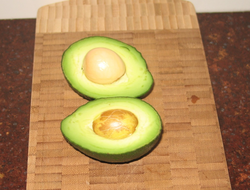The fat/sugar what's in/what's out debate
Published: February 15, 2019
Despite consistent recommendations for healthy eating, debates comparing benefits of low carb versus low fat diets continue to wage: now disguised as debates between the healthiness of fat and sugar.
Given the multitude of diets, “expert” opinions, and personal beliefs that abound, how do you determine what is good for your health?
For decades international recommendations for nutrition that meets the requirements for most people have remained relatively consistent.
Based on various types of scientific evidence guidelines for macronutrient and micronutrient content of “healthy” diets provide parameters for carbohydrate, protein, fat, and vitamins and mineral daily intake.
These parameters, or rather a range of nutrient intake, such as 45%-65% carbohydrate per day, 20-35% fat, and between 0.8-1.4 g/kg bodyweight/day protein, allow for considerable variability as to macronutrient content of a nutritious diet.
The parameters for vitamins and minerals are set by minimum intake (below which deficiency may occur over time) to an upper level (above which toxicity may occur over time).
Scientific research also recognises that some individuals live healthy lives even when their macro and micro nutrient intake lies outside of these parameters.
This is not surprising given that we are all unique individuals and live different lifestyles.
While nutrition recommendations have not fundamentally changed over the years, on the surface they may appear to have done so.
These changes often reflect the incorporation of a greater variety of cultural foods and changing lifestyles.
More recently, changes reflect attempts to engage the public to take on healthier eating habits. Different “pyramids, rainbows, plates” and messages to consume more fruits and vegetables are devised to attract people’s attention.
However, fruits and vegetables have been a mainstay of healthy eating for decades as have whole grains.
Emphasis has also been given to lean protein (particularly chicken and fish), and plant based protein such as legumes.
Recommendations for fat intake have focused on adequate fat from a variety of sources such as nuts, seeds, low fat dairy products, and vegetable oils (not palm oils).
While added sugar and saturated and trans fats have been highlighted as nutrients to limit, no recommendations have suggested “no fat” or “no sugar” intake.
Yet this “either or” paradigm is how nutrition recommendations are often interpreted...link to the full article to learn more.

